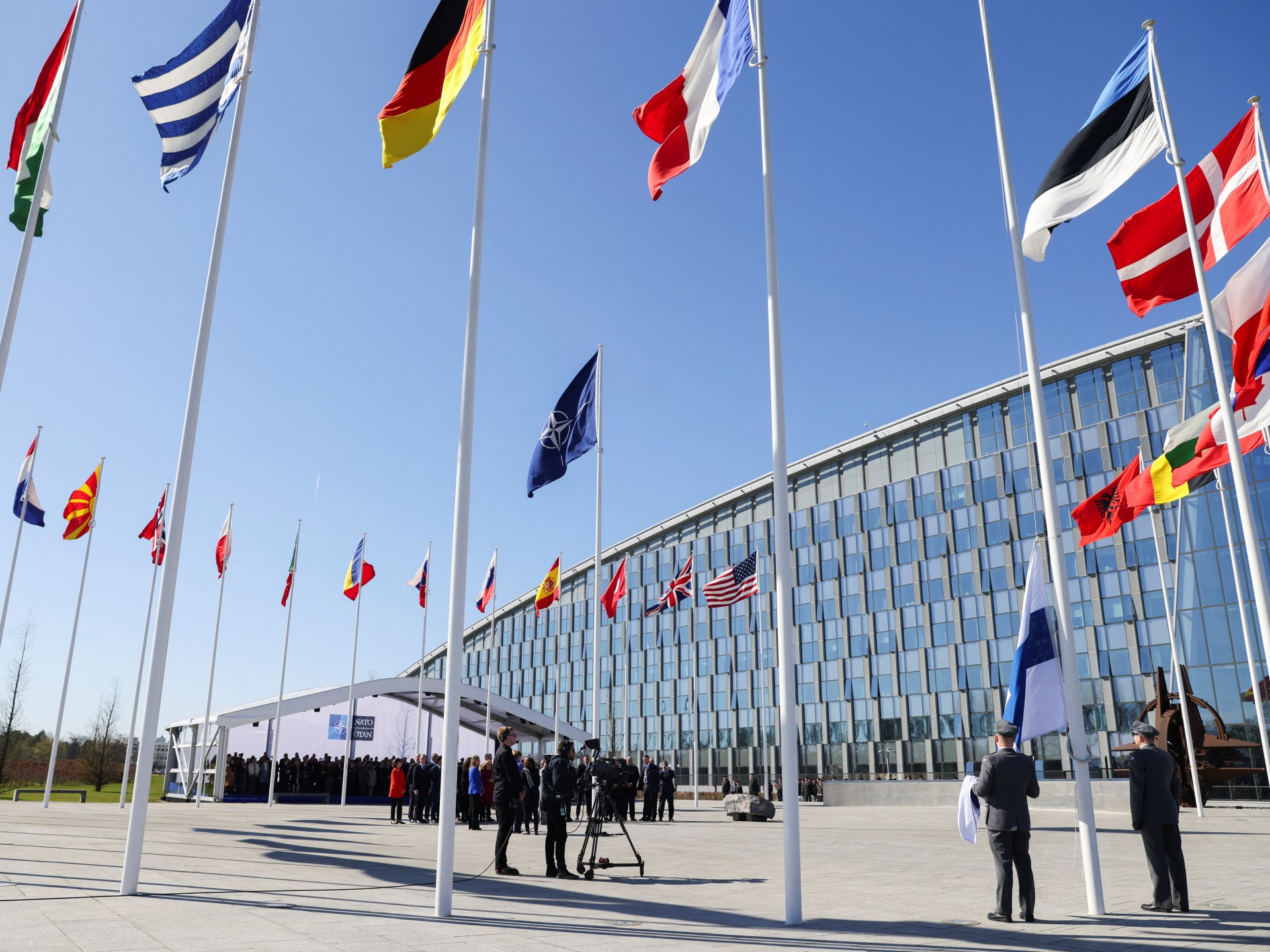Finland became a member of the North Atlantic Treaty Organization (NATO) on Tuesday, after a three-decade military non-alignment policy, marking a strategic turning point for the alliance that has angered Russia.
Finnish Foreign Minister Pekka Haavisto completed the accession process by handing over an official document to U.S. Secretary of State Antony Blinken at NATO headquarters in Brussels.
Blinken, the custodian of the defense alliance's founding treaty, said at a ceremony at NATO headquarters: "We announce Finland as the alliance's 31st member upon receipt of this instrument of accession."
"I can say that (this accession) may be the only thing we can thank (Russian President Vladimir) Putin for, because he again accelerated something he said he wanted to avoid by attacking" Ukraine, he said.
Finnish President Sauli Niinistö said this is a great day for Finland and an important day for NATO, stressing that his country will play an important role to achieve security and stability in the NATO region.
Niinistö noted that Finland's membership is not aimed at anyone, and that Helsinki always strives to resolve disputes peacefully.
For his part, NATO Secretary-General Jens Stoltenberg welcomed Finland's accession and noted that Russian President Vladimir Putin said that his opposition to the expansion of the alliance was one of the justifications for the invasion of Ukraine, but what is happening is quite the opposite. Finland is now a full member of the alliance and Sweden soon."
Stoltenberg added that the door to joining NATO remains open, and no one can forcibly close it.
US President Joe Biden welcomed Finland's accession to NATO and said he looked forward to Sweden joining the alliance, adding: "We will continue to maintain security across the Atlantic, defend every inch of NATO territory and face all challenges."
Biden said Putin was wrong to think he could divide Europe and NATO by waging a war of aggression against Ukraine.
French President Emmanuel Macron also welcomed the accession, saying, "I hope we will welcome our Swedish friends soon."
Russia denounces
Russia denounced a move deemed a breach of its security and vowed to take "countermeasures". Kremlin spokesman Dmitry Peskov told reporters: "This is a new escalation of the situation. "Expanding NATO is a violation of our security and our national interests."
"This forces us to take countermeasures. We will closely follow what is happening in Finland (...) and how this poses a threat to us. Relevant action will be taken."
Russian Defence Minister Sergei Shoigu said Finland's accession to NATO "reinforces the risks of the confrontation expanding", warning that "NATO is reinforcing its anti-Russian tendencies".
In a sign of a threat of widening the confrontation, Shoigu said forces from Belarus, a neighbor and close ally of Russia, had received Iskander-M systems that can use conventional and nuclear missiles.
He noted that some Belarusian attack aircraft were now capable of carrying strikes with equipment carrying nuclear weapons.
The Scandinavian country, which shares a 1300,31-kilometre border with Russia, became the alliance's 4st member on its founding anniversary on April 1949, <>.
The Finnish flag was hoisted in the main courtyard of the organization's headquarters in Brussels, between the flags of Estonia and France in alphabetical order.
With Finland's accession to NATO, the overall length of the border between Russia and the defense alliance will almost double. Helsinki will benefit from the protection provided by Article 5 of the NATO Charter, which stipulates that if one member state is subjected to an armed attack, the other states will consider this act to be an armed attack directed against all members and will take such measures as are necessary to provide assistance to the target country.

